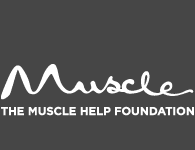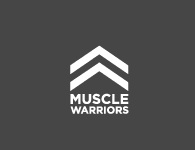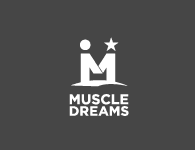- Home
- #PowerOf657
- About Us
- Muscle Dreams
- Beneficiary Stories
- Academic Impact Report
- Bereavement Research Project I
- Bereavement Research Project II
- Inspiring Hearts, Engaging Minds
- Nominate for Muscle Dreams
- Nominate for Programmes
- Wellbeing Outreach Programme
- Virtual Muscle Dreams
- Virtual Muscle Dream Resources
- Throwback Thursday Videos
- Examples of Fulfilled Muscle Dreams
- Muscle Warriors #657Anthem
- 2012 London Games Inspired
- Testimonials
- Get Involved
- News
- Get In Touch
What is Muscular Dystrophy?
Muscular dystrophy (MD) is a genetic condition that causes mutations in muscle fibres that progressively weaken the muscles. Over time, the decreasing muscle function results in an increasing level of disability. Some types of MD will eventually affect the ability to swallow, as well as weakening the heart and respiratory muscles.
In the UK, it's estimated that in 2019, there were around 110,000 people affected by a muscle-wasting condition ie. babies, children and adults impacted by MD - click here for more information about this number and the research that sits behind it. Fewer women and girls are affected than men and boys, and their condition is generally less severe.
As yet there is no cure for MD. There are however a variety of treatments depending on the type and severity of MD. These include physiotherapy and exercises, physical aids to help people stay mobile, pacemakers, and steroid medication, as well as corrective surgery to ease some of the physical effects, such as postural positioning, scoliosis, difficulty swallowing, and drooping eyelids.
The prognosis for those with MD differs according to the type and progression of the disorder. Some cases may be mild and progress slowly over a normal lifespan. Others produce severe muscle weakness, functional disability, and loss of the ability to move parts of the body. Some children with MD die in infancy while others live into adulthood with only moderate disability. MD can affect adults at any age, but the more severe forms tend to occur in early childhood.
Research is ongoing, and there are new trials with gene therapy, as well as promising research into stem cell therapies.
Common types of Muscular Dystrophy
There are different types of MD, each with different symptoms and severity of disability. Some types are inherited, while others occur without warning. Not all types affect life expectancy.
The most common form is Duchenne Muscular Dystrophy (DMD), which is considered the most severe as it is a life-limiting condition. DMD usually affects boys and is typically diagnosed when they are between 1 and 3 years old. While DMD does occasionally affect girls, their condition is generally milder. Young people with DMD usually need to use a wheelchair by their mid-teens, and the condition can also lead to scoliosis. Eventually the condition damages the heart and respiratory muscles, and most people die of heart failure or respiratory failure in their early 30s. The rarer Becker MD is closely related to DMD, but it develops later in childhood and is less severe.
Myotonic is the second most common type of MD. It can develop at any age and affects men and women equally. It’s usually first detected in the face, neck, arms, hands, hips and lower legs. Life expectancy isn't always affected unless the condition is severe.
The third most common type is Facioscapulohumeral MD, which can also develop at any age and affects both genders equally. Muscle weakness is usually first detected in the face, shoulders and upper arms. It isn’t usually life-threatening and progresses slowly.
Why do some MD variants affect males more than females?
Some disorders are caused by a genetic mutation in the X chromosome. Men have only one X chromosome (the other being a Y), whereas women have two. If one X chromosome is mutated, women have another that will compensate for the mutated one. As men do not have that ‘back up’ X chromosome, they are more severely affected.
For more info about causes, symptoms and treatments of Muscular Dystrophy, click the links below:
www.nhs.uk/conditions/muscular-dystrophy/
www.webmd.com/children/what-is-muscular-dystrophy#1
www.cdc.gov/ncbddd/musculardystrophy/facts.html
www.healthline.com/health/muscular-dystrophy
Want to help? Visit our fundraising page or donate.
Muscles: Instruments for the music of life
Your muscle orchestra possesses about 657 players all conducted by your brain, generating the incredible array of contractions necessary to express the music of your humanity. Everything you do is executed by muscle contraction starting with the air you draw into your lungs. Put another way, struggling to play those muscle instruments means you cannot easily fill the world with your music.
Skeletal muscle stands you up and propels you, heart muscle pumps for you, muscles that move things through your body, enabling you to smile, your eyes to focus, or your voice to sing, all these and so many others turn your silent thoughts into noisy human action. We know the measure of your humanity lies in what you do, how you express yourself and the experiences you enjoy.
The Muscle Help Foundation (MHF)
More than movement; the music of life
That’s the #powerof657

SOURCE (Feb 2015)
Dr Christopher McGrath PhD, DO(UK)
Clinical Anatomist, Consultant Osteopath
Brother of Michael McGrath MBE, CEO MHF
UK Campaign Headquarters: 12 Cowslip Grove, Clanfield, Waterlooville, Hampshire, PO8 0WP
Cookie & Privacy Policy | Website Disclaimer
Web design Hertfordshire by Cariad Marketing | Design by Lantern






